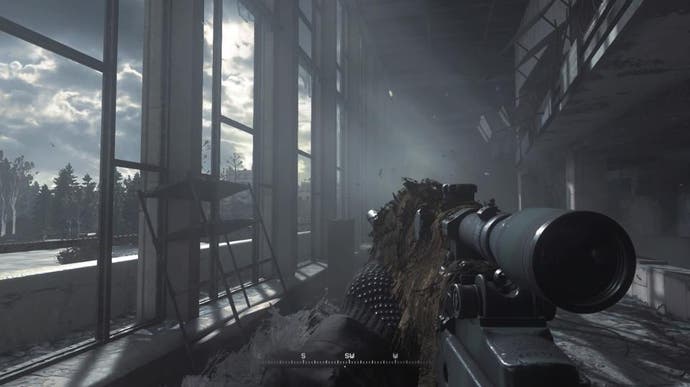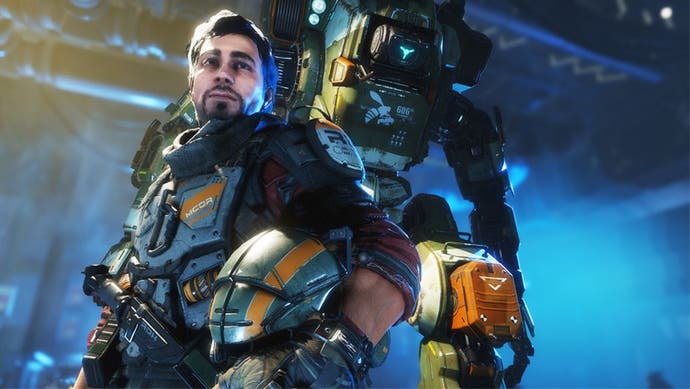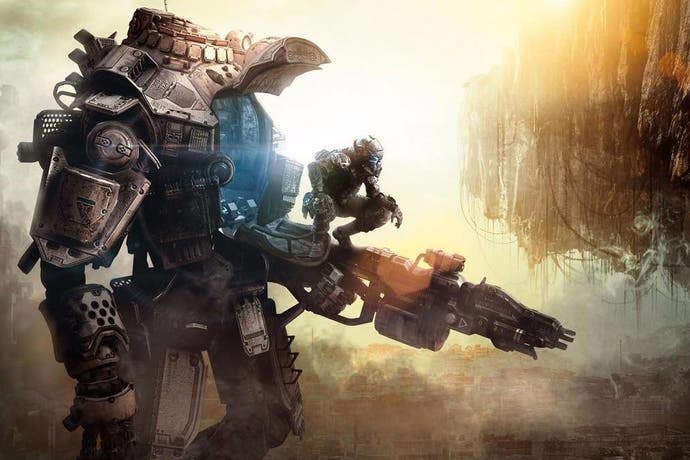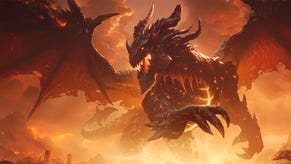Why I think big console game sales are down
Money and excitement. Well, a lack of.
Here's what's clear: big console game sales are down. Titanfall 2, Watch Dogs 2, Call of Duty: Infinite Warfare, Dishonored 2 and more all failed to even match the sales of their predecessors at launch. People I've spoken to in the UK retail business are in panic mode. The PS4 has been a huge success. Xbox One is doing well. What's going on?
I've seen plenty of theories, some better than others. Writing on Eurogamer's sister site, Gamesindustry.biz, Rob Fahey puts forward one of the better ones: that the rise of digital means fewer physical game sales are in people's hands to trade-in. Certainly in the UK, which has a huge pre-owned video game market, that makes a lot of sense.
Fahey also suggests more and more games are designed to keep us playing week after week and, as a result, we're not interested in playing as many new games. Think Destiny or Minecraft or FIFA. Again, I agree this plays a part. I played Destiny for pretty much two years solid, tuning in each week to the detriment of trying out new games.
But I think there's a lot more going on.
It's a complex issue, but for me the two main factors that have caused console game sales to sag during the latter half of this year are a lack of excitement, and money.
(First off, I feel it's important to note that this article is about predominantly console games, not PC games, which, fuelled by Steam, play by separate rules.)
Now that's out of the way, let's dig into the detail. Each console game considered a flop has its own set of problems that contributed to poor sales, but I think to each you can apply the lack of excitement theory.
Let's talk about Watch Dogs 2, a game that annoys me but I enjoy, and one that has been critically acclaimed. Well, I sensed a distinct lack of excitement in the run-up to the game's release. Why? The first Watch Dogs was a monster success off the back of some incredible hype. Remember that reveal video? I imagine a lot of people bought the game because of that, despite concerns over a downgrade. Then it turns out Watch Dogs isn't that good and that video is a bit misleading. Well, I'm not bothered by Watch Dogs 2 now, I'm afraid. Sorry.
Now let's talk about Call of Duty: Infinite Warfare. Well, there was a huge lack of excitement in the run-up to that game's release. In fact, I sensed a generous dollop of hatred. Why? A lot of people are just burnt out by Call of Duty at this stage, and have moved on to other games and other genres. The kids have grown up, they've got kids of their own, and they don't have the time to git gud at competitive multiplayer. And the new kids are all off playing League of Legends and Dota 2 and Counter-Strike anyway. In many ways, I feel Call of Duty's downward trend is as much about the series losing relevance as it is about questionable publisher decisions.
Talking of questionable publisher decisions, Infinite Warfare was onto a hiding when Activision decided to lock Modern Warfare Remastered behind the £80 Legacy Edition. There are a lot of people out there who fancied playing Modern Warfare Remastered, but not a lot willing to pay £80 for the privilege. If nothing else, the whole thing just came across as a mean spirited move from Activision, a publisher whose coffers have swollen for years off the back of the Call of Duty community's willingness to part ways with their hard-earned cash each November. This year, it seems, gamers voted with their wallets.

And then there was the Battlefield 1 effect. Infinite Warfare's ultra sci-fi setting and journey into space failed to capture the imagination of the mainstream shooter demographic, despite the campaign turning out to be pretty good in the end. And then EA announced Battlefield 1, a game set in World War 1, and the battlelines were clear. Activision waved away concern about the record number of downvotes Infinite Warfare trailers received on YouTube, but they meant something. They meant good was fighting against evil in 2016's first-person shooter war. No prizes for guessing which was which.
Speaking of the first-person shooter war, Titanfall 2 was the big casualty. Despite being absolutely brilliant, it flopped, so much so that developer Respawn isn't sure it'll get the chance to make another one. Most people put this down to EA sandwiching its release in between Battlefield 1 and Infinite Warfare. I doubt this helped, but I think the real reason it failed to sell well was because of a lack of pre-release excitement. The game just kind of came and went. No-one seemed massively pumped, despite the addition of a campaign.

The Titanfall 2 situation brings to mind a current theory that Q4 was too crowded. Well, I don't think this theory makes much sense. Q4s have been too crowded for years. Let's look back at Q4 2007, shall we? Call of Duty 4: Modern Warfare; Halo 3, BioShock; Mass Effect; Super Mario Galaxy; Assassin's Creed; Rock Band; Guitar Hero 3: Legends of Rock; Crysis; The Orange Box (which, by the way, saw the debut of Portal and Team Fortress 2); Uncharted and more all launched within a couple of months of each other. None of these games were perfect, but they all pretty much defined the generation. And they were all hits. Can you say the same about any of this Christmas' biggest titles?
I'm afraid a lot of 2016's big games just failed to excite people. Blame it on sequelitis. Blame it on burnt out communities. Blame it on whatever you want. But when I compare this year's games to 2007's for example, there's no contest. There's nothing as groundbreaking as Modern Warfare, as influential as BioShock, as all-encompassing as Halo 3 or as magical as Super Mario Galaxy.
Now, onto the money issue. It seems too simplistic to say people don't have as much money as they used to. (Blame Brexit!) What I think is happening is people don't have the money to justify forking out £45 on a brand new game they could take or leave anymore - not when they know it'll be much cheaper in a few weeks. Just look at what happened with Titanfall 2, which HMV sold for just £20. Black Friday and other regular sales have trained us to be smarter with our cash.
In any case, exciting games continue to sell. Uncharted 4 came out in 2016 and that was a monster hit. Skyrim Special Edition came out in 2016 and that was a monster hit. Overwatch is a 2016 game and it's a monster hit. What about the new Pokemon games on Nintendo 3DS? Nintendo's biggest ever launch. The Division was a massive hit. And, love it or hate it, No Man's Sky was a massive sales hit. What do all these games have in common? Everyone was really excited to play them.

In a way, publishers only have themselves to blame for what's going on. Discerning gamers are more willing to hold off at launch because they've been burned by countless broken games. Sometimes games are eventually fixed. Sometimes they're left to wither and die. Battlefield 4, Assassin's Creed: Unity, Halo: The Master Chief Collection - they don't exactly instill confidence in the idea of buying a game when it first comes out, do they?
So, the trouble with console game sales is a complex issue to untangle. It's hard to make sweeping generalisations when each game has its own set of problems, but really, I think it comes down to excitement and money. What I'm hoping from 2017, then, is a bit more excitement. That and Marvel vs. Capcom 4.









